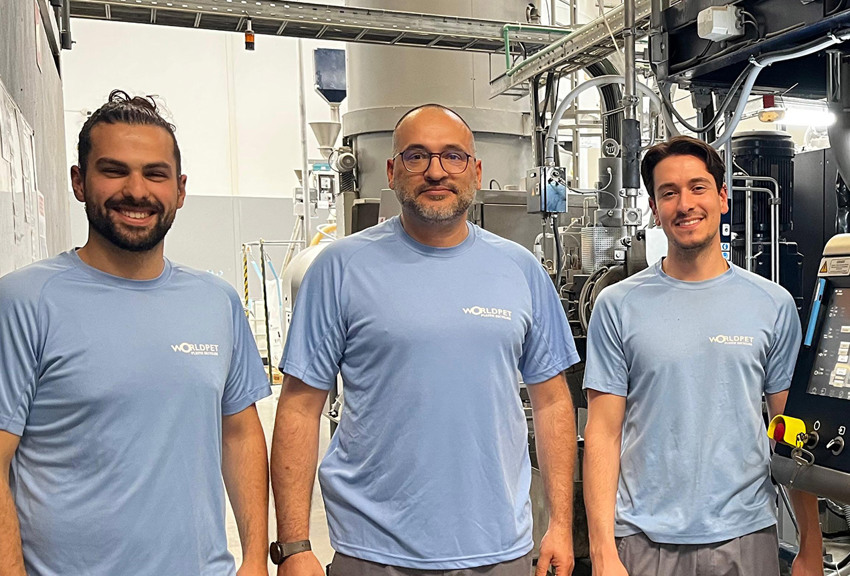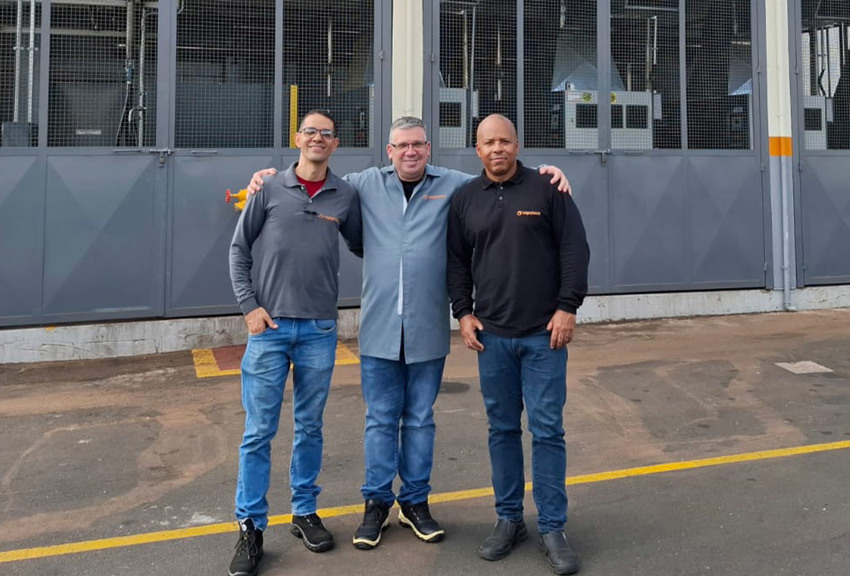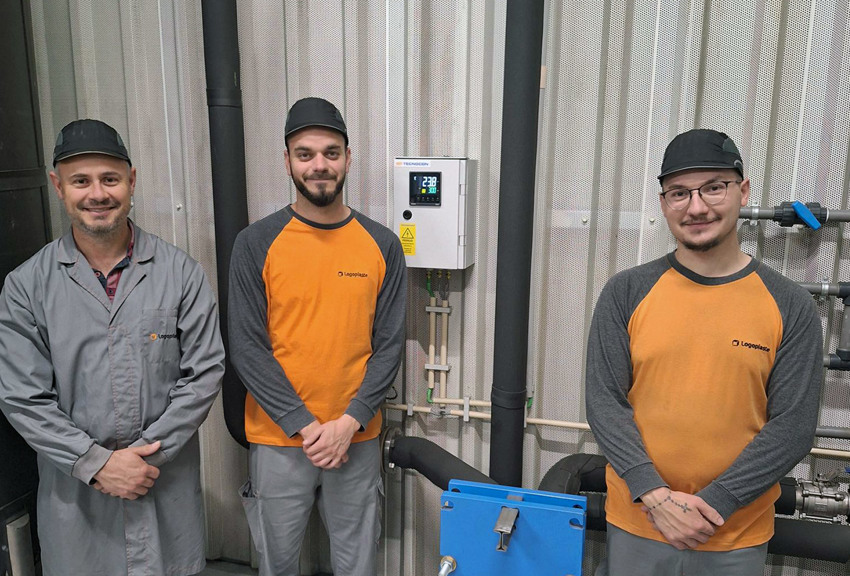In 2024 our total water withdrawal was 202 ML (megaliters), with 53% from the public supply network and 47% from groundwater.
Water withdrawal by source
| 2023 | 2024 | 2023 vs 2024 (%) | |||
| Water Withdrawal Source |
Water Withdrawal (ML) |
(%) | Water Withdrawal (ML) | (%) | |
| Third party water | 136 | 56% | 106 | 53% | -22% |
| Groundwater | 108 | 44% | 96 | 47% | -11% |
| Total | 244 | 100% | 202 | 100% | -17% |
In 2024, our water withdrawal decreased by 17% compared to 2023, representing a notable reduction in our overall water consumption. This improvement is attributed to a significant decrease in water consumption at our recycling plant, Ecoibéria, as recycling remains a water-intensive process.
In 2023, Ecoibéria accounted for 127 ML of our water withdrawal, representing 52% of the total consumption. In 2024, this figure dropped to 78 ML—a 38% reduction compared to the previous year—now representing 39% of our total water withdrawal.
We use Aqueduct's Global Water Risk Mapping tool from the World Resources Institute (WRI) to understand which plants operate in high water-stressed areas so we can implement tailored actions.
In 2024, Logoplaste withdrew 139 ML of water from areas classified as having high to extremely high-water stress, compared to just 56 ML in 2023. This sharp increase is primarily due to the reclassification of the Porto metropolitan area in Portugal—from medium-high to high water stress—where our recycling plants, Ecoibéria and WorldPET, are located. The combined water withdrawal from these facilities reached 96 ML.

Drastic water consumption reduction
Marta Salgado highlights the progress WorldPET has made not only in production expertise but also in reducing water consumption. This achievement reflects a collective team effort, driven by shared goals and collaboration.
“When WorldPET began operations, our limited operational knowledge of the newly installed equipment led to frequent shutdowns and restarts. Each restart cycle required additional water to stabilize the machinery, resulting in high levels of consumption and operational inefficiencies.
In 2023, we prioritized the development of technical expertise and invested in training to strengthen operational control. This focus on capability building enabled us to optimize production processes and significantly reduce water usage. These improvements are clear evidence that continuous process enhancement and strict operational control can directly improve environmental performance.
This initiative reflects our broader commitment to reducing our environmental footprint and managing water resources responsibly. The results demonstrate that ongoing improvement—supported by employee development and disciplined processes—leads to measurable gains in sustainability.
Through these efforts, WorldPET reaffirms its dedication to efficient water use and the reduction of our environmental impacts.”
Marta Salgado
QEHS Manager
WorldPET

Water reduction & increased production output
In 2024, Araras 1 achieved outstanding results in water efficiency, driven by targeted infrastructure upgrades. The investments paid out, as Silvio explains:
“We replaced two outdated chillers and one dry cooler, previously located inside the plant, with newer, more efficient equipment. The new units offer increased capacity while consuming significantly less water. To support this upgrade, a dedicated utilities area was constructed outside the production building to house the new systems.
As a result of this initiative, water consumption decreased from 4,071 m³ in 2023 to 2,844 m³ in 2024, representing a 30% reduction.
Important to note, this efficiency gain occurred despite increased production output. The volume of material processed rose from 3,404.68 tons in 2023 to 4,006.85 tons in 2024, an increase of 602.17 tons. This reinforces the effectiveness of the water-saving initiative, demonstrating that higher productivity can be achieved with reduced resource consumption.”
Silvio Schwartz
Plant Manager
Logoplaste Araras 1

Smart cooling, sustainable impact
“At Logoplaste Pedras Salgadas, we faced a challenge with our existing evaporative cooling tower, which offered limited control over water temperature. This often led to condensation issues in the compressor and inefficiencies in the cooling system. Rather than replacing the tower with a more advanced version, we took a smarter, more sustainable route: we installed a heat exchanger.
This solution delivered multiple benefits:
- Precise control over cooling water temperature
- Zero water loss from evaporation
- Elimination of Legionella risk
- Lower water treatment costs
- Prevention of condensation-related mechanical issues
Even when the main goal of a project isn’t directly linked to sustainability or water management, there’s always room to choose a solution that makes a positive impact.”
Diana Mimoso
Project Engineer
Logoplaste Portugal